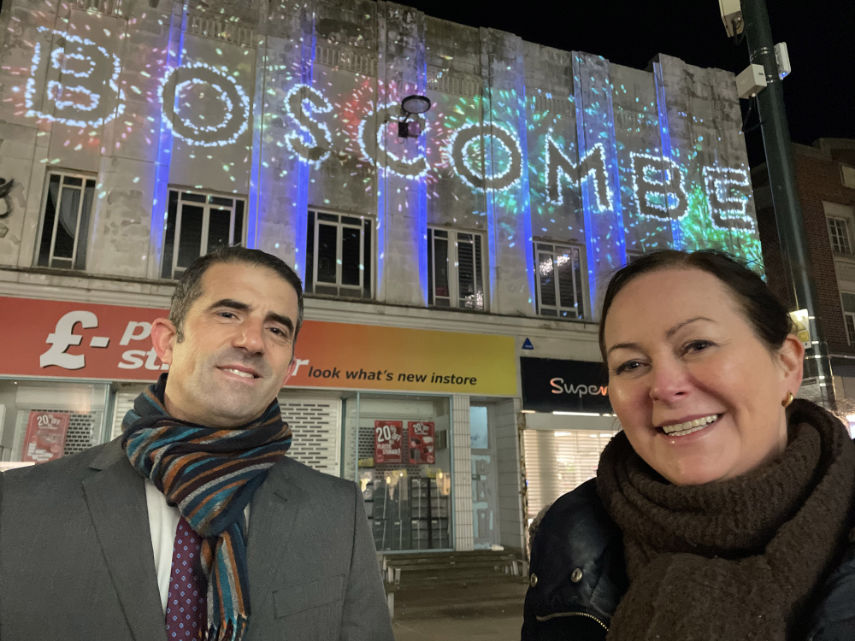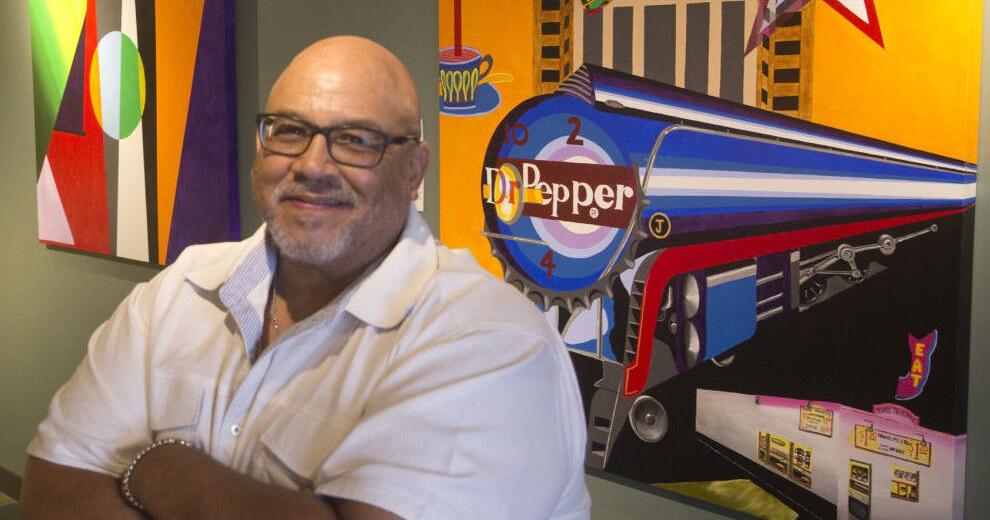relax it is Yahoo Life’s wellness series in which experts, influencers and celebrities share their approaches to wellness and Mental Health, from self-care rituals to setting healthy boundaries to mantras that keep them afloat.
When skateboarding made its Olympic debut in Tokyo this year, one of its American team members, Alana Smith, made history by becoming the first non-binary athlete to compete in the Olympics.
Smith was one of 16 members of the US skateboard team, and although the 21-year-old finished last in their event, they expressed their joy at just being involved in the competition. “I feel happy to be alive and feel like I’m supposed to be here for the first time in a very long time. Sooner or later I walked out of this happy and alive life… It ‘ is all I’ve ever asked for, â€Smith shared in a celebratory Instagram post in July.
This was no small statement, as the Los Angeles athlete had previously explained how issues of gender identity, family trauma and other mental health issues led them to attempt suicide.
And it looks like a way out of darkness continued for Smith, who landed a spot in a new campaign with a sports and corporate coaching company Exercises and focus on being a skating mentor after temporarily moving to Texas, where they want to create “safe space skating sessions to let humans be themselves and feel comfortable,†while engaging more fully and openly in their non-binary identity.
Here, Smith talks with Yahoo Life about how they view gender, how they stay mentally healthy, and what it’s like to compete on the world’s biggest sports scene.
What do you remember the first time you got on a skateboard?
I was about 7 years old. I had a few friends in the neighborhood who had their own boards, so I just jumped on them, screwed up. It took a while for me to convince my birth parents to buy me a skateboard, but when I finally did, it was hard to walk away from it. And since then, it’s been part of my life. It’s part of me. [The love] was instant… just the feeling of skating and progressing, especially at the start, when everything seems so fast, so new and so exciting.
And what is it like to be there for the big time in skateboarding, becoming an Olympic official for the first time?
It has been a mad rush, especially having entered it so young, and this is the first time that I have been to [competing] when I was 12… just a time to sum up how far skateboarding has brought me in my life, and how it really saved me through everything. The Olympics were a bit like my turning point in discovering myself as a human and becoming the adult that I am.
So, it was a strange year to be at the Olympics, with no one in the stands. How was it ?
It was crazy. I mean, I was really trying to live in the moment at the Olympics, I was really trying to experience it all. We were talking to some of the other athletes about how the previous Olympics went, and they’re like, yeah, nothing like it! But hopefully I can possibly go to one of them in the future, even just to see what it is. But it was a blast, honestly.
Congratulations on the Exos campaign. What would you like people to know about your relationship with this global coaching company?
It was just a really cool opportunity to be a part of the campaign – especially after the Olympics, and how much they helped me with my training, and how great the team is there. I was working with the nutritionist, and I was having trouble with my ankle… a really big ankle sprain at the start of the year, so I was working with the physiotherapists, just building my strength, getting ready, making sure I was healthy, happy, feeling good and confident.
You have been very open about your own mental health issues, including family issues related to addiction, and even your own suicide attempts. Why did you choose to be so open about such difficult and personal issues?
I just try to be as open as possible, because growing up I didn’t really have a representation that I felt really connected to. And I’m really just trying to be [that] representation for the people who need it, because there are so many people going through similar things – exactly the same, for the most part. And I just want them to know that no one is alone. Like, I want everyone to know that they’re not alone… and that if you like something enough and think about it and really work as hard as you humanly can, that anything is possible… The skating has literally saved me countless times. And I just wanna give people that feeling… help them find what they like [that can help them] go on and realize they’re meant to be here.
Where did you find this support? And what tools other than skateboarding have helped you with your sanity?
I think it’s a mixture of a lot of different things. But I have an incredible support system around me. I emancipated myself when I was 17, and my amazing partner and all his family really made me feel welcome. And these are the people I call my true fans and my family. They love me so much and I care so much for them. And I have an amazing family when it comes to skateboarders that I’ve grown up with over the years; they’ve really been my rocks… just being surrounded by really strong people, because life is way too short to waste the love, energy, and time you have with the wrong people.
So you mentioned earlier the “biological parentsâ€. You separated from your birth mother when you were emancipated, right?
Yes. I am close to my biological father and have three younger siblings who I love so much. It’s more or less my biological mother who I don’t talk to. She suffers from a heavy addiction and there has been a lot of mental, physical and just emotional abuse. We don’t communicate which is good. It was my choice.
Have you also relied on therapy for support?
Therapy has been a huge part of my trip. Out of habit I really try to make sure at least that I have a few things that I really like that I’ve noticed have helped me a lot. Therapy was very important, and it’s something I recommend – even if you don’t necessarily feel depressed, but just need to talk to someone who isn’t in your life and has a perspective. different on things. I think as humans we don’t realize how much we are bottling up. Another thing that has been huge for me is training… So skating, training, playing with my style. These are all things that have helped me a lot.
What does it mean for you to identify yourself as non-binary?
I’ve always been someone who never really felt on either side of the spectrum when it came to my gender expression. I just felt like I was in the middle. Like, I have more feminine days, I have more masculine days. I’m someone who is definitely more masculine in the presentation… but I never really liked feeling like I had to choose one or the other, because I never really felt like it was me.
You had your pronouns on your skateboard at the Olympics, which you showed to the world. Why was such visibility important to you?
Honestly, I knew that by going to the Olympics… I was probably going to be wrong, and I wanted it to be as visible as possible that the pronouns I was going to be wrong with weren’t my pronouns. And I just really wanted to show and validate everyone who’s been through the same hardships, because trying to find each other is such a tough journey to go through. I wanted to make sure that all other humans feel validated, because there isn’t necessarily a place or a platform for us to be authentic ourselves when it comes to competition, I really wanted to bring a honest point of view about it, and showing that we deserve a place.
So even if you expected it, how did you feel when the Olympic Games announcers has he cheated on you sex?
I think, because I expected it, it was more just the typical talk of parents. It seemed like an interesting time, because especially when you think of something like the Olympics, or just big broadcasting companies – when you have a job that is literally talking about the people who are competing, you would assume that they would research the people they are going to advertise. And I’ve always made it very obvious before the Olympics… whether it’s on social media or just wearing my pins. So, I was just disappointed because I felt like people hadn’t really done the research that [we] merit. And it even comes with humans who are cis… like an official sometimes mispronounces names… It’s really as simple as asking, like, “Hey, I don’t really know how to pronounce your name, how can I do that. to pronounce? “
What do you think of so many young children these days who identify as nonbinary or use various genderless pronouns?
My biggest thing is I tell people not to rush with labels, especially when you start so young, because it becomes such a more standardized thing, which is amazing. Like, a million percent, try on the hat, see which one fits you. Because that’s honestly how I discovered my own pronouns. Like, I was missing something that I couldn’t understand. I was really struggling with that. So, I got to a point where I just asked my girlfriend, “Hey, can we try using these pronouns? Because I feel like it might be fine for me. And sometimes it’s enough to test things here and there. But don’t rush the labels, especially when you start to understand each other. It kind of prevents you from learning more about yourself. So always be open and always be patient with yourself because it takes time.
This interview has been edited for clarity and length.
Want to get lifestyle and wellness news delivered to your inbox? Sign up here for Yahoo Life newsletter.
 Welcome To Poole
Welcome To Poole
_w=1200_h=630.png?v=20220321141806)


